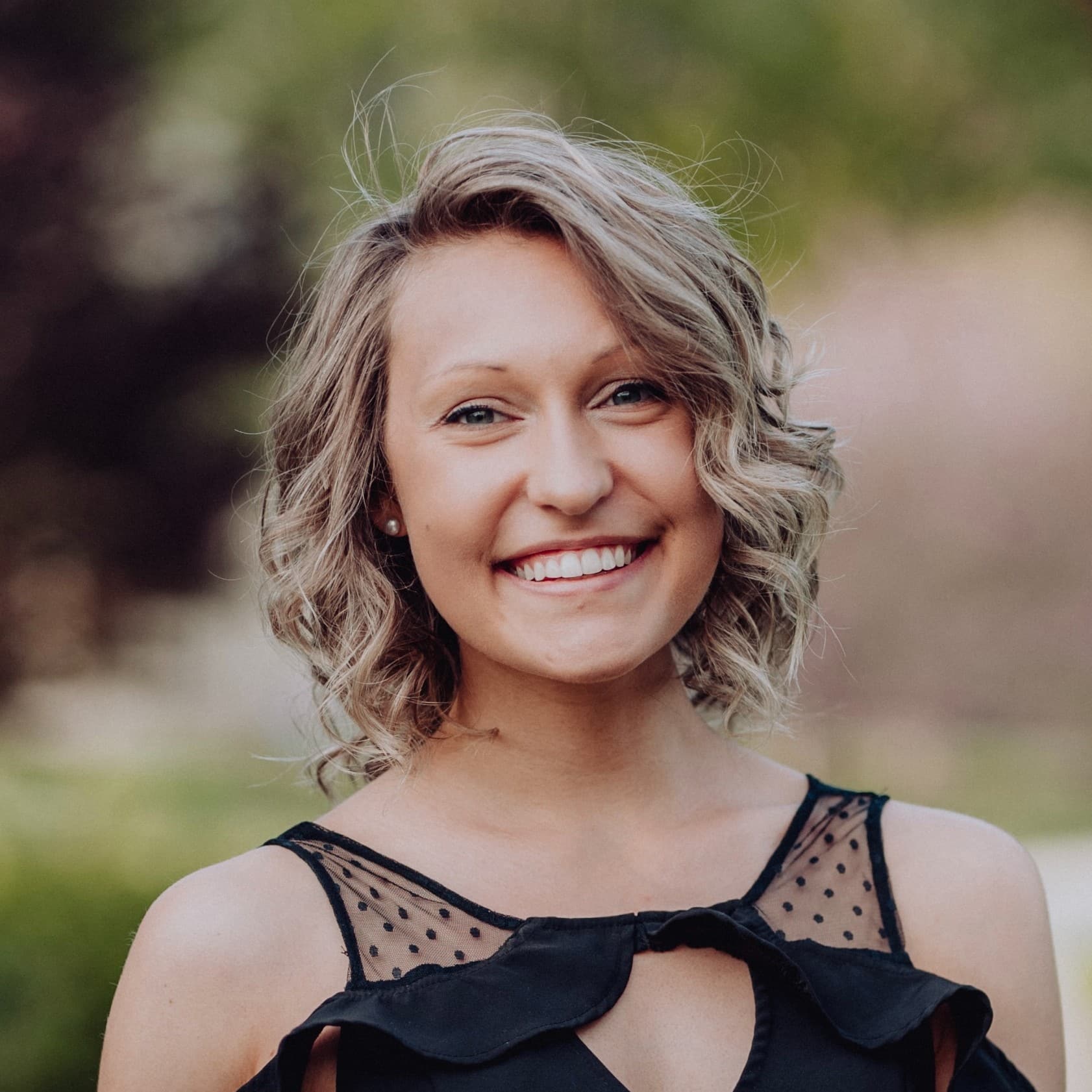Riley is a psychotherapist at Wildflower. Riley’s clinical areas of specialty include relationship challenges, depression, anxiety, substance and process addictions, trauma, and grief. As a marriage and family therapist, Riley has a particular interest in working with couples and families. Additionally, Riley is currently pursuing specialized training in perinatal mental health. Riley earned a bachelor’s degree in psychology at University of Wisconsin-Madison and her masters in marriage and family therapy from Wheaton College. Read Riley’s full bio here.
What inspired you to pursue a career as a psychotherapist?
When I first chose to become a psychotherapist I thought it was because ‘nothing is as interesting to me as understanding what makes people feel, think and do what they do’… However, further along I got in my studies I learned there was a part of me that had many questions about myself that I didn’t know how to even begin to ask, much less share with those around me whom I genuinely did want to be in relationships with. I realized I was both interested in the science AND longing to learn how to reconnect with the parts of myself I put away when I was young and scared and didn’t know what else I could do. And to be honest, this is still a work in progress (always will be!) but I have come a long way in not only knowing how one does this but finding what it takes for me to be willing to do the hard but loving thing for myself. Now I choose to go through this with the clients I get to see, listen to their stories and offer help by sharing tools and options they have for moving and changing what they want to.
As a psychotherapist, what part of your job is most satisfying?
Some of the things I love most about being a therapist include: the variability and uniqueness of each session; the emphasis on shifting into a more slow, focused mode of operating in our lives; and learning how to use the qualities a person already possesses as a source of strength and a guidance. One of my insecurities early on was around feeling like it could take me a really long time to thoughtfully process information and share my genuine response with others. When I became willing to stop judging and resenting this, I started to benefit from being able to lean on this way that I am in certain situations; such as, time dedicated to being present with clients, paying close attention and injecting a sense of calm and patience into the time I share with them.
How would you describe your therapeutic approach?
A very important part of my therapeutic approach is warmth, compassion and personal relatability. Clinically speaking, my approach is integrative and systemic in nature, incorporating a bio-psycho-social-spiritual model of understanding people. This allows us to zoom out and in to help you see your own experiences and attachments with a comprehensive and dynamic view point. In my personal and therapeutic relationships I align with a humanistic, person-centered perspective that prioritizes earning trust through creating a safe space to be curious, messy, playful, and vulnerable. I really embrace the philosophy that there’s so much we don’t know and I’m game to exploring your own ideas as we co-create an experience that feels personalized and meaningful to you.
Why do you believe that psychotherapy can help?
There are so many reasons that therapy can be helpful to anyone. One of the parts of therapy I believe to be the most outstandingly helpful is the one-on-one connection between a client and therapist. Specifically, the type of connection which allows clients to feel most comfortable being honest and imperfect and willing to do something that’s never been done or say something that’s yet to be said. Willingness to walk through the proverbial door into a therapy session is inherently a step of openness to change; what happens in the time spent in that space is full of potential and can be a real break from self-imposed limiting beliefs.
What are some of your specialties and what drew you to them?
I think I was drawn to relational therapy specifically by a longing to learn and then share how people can better understand why they are the way they are in their various relationships. The kinds of things we are drawn towards and the reactions to our experiences of connection have, in many cases, grown from ways we learned to live in the earliest attachments we developed in childhood. My own patterns are no exception to this normal human process.
What is one thing about psychotherapy you wish everyone knew?
“Getting better” doesn’t mean it won’t still hurt. Healing restores a connection with parts of ourselves that we’ve become estranged from. Repairing that connection unlocks an ability to feel very deeply and sometimes what we will feel, for a few moments, can be pretty painful. The difference that therapy can make though is that this time, in our pain we can lean on the healing power of a safe and caring relationship and effective tools for coping with the situations we face. Still feeling hurt DOES NOT mean you aren’t healing, learning, growing.
What is your motto or personal mantra?
My initial thought when contemplating how I wanted to answer this question was… ‘well, it depends.’ I thought and thought and thought for a while before I realized that I use that very phrase in so many conversations. It’s a response that used to frustrate the daylights out of me to hear, until I realized 1) it’s just true and 2) it invites us to pause and reflect on what we’re really wanting to know or talk about before reacting or using generic ideas to figure out really nuanced things.
Also, one of the messages I heard growing up that stuck with me the longest is that, “There is power in a touch, a smile, a kind word, a listening ear, an honest compliment, an invitation, or the smallest act of caring, to make a powerful difference to someone.”
What are your favorite self-care activities?
Breathing! I often hold my breath when I feel stress and disconnection from myself, but learning to control it has helped me to feel so much more grounded, powerful and free – to me it is the closest thing to having magical feelings powers.
Moving my body in a way that feels fun and free and playful – dancing, running, walking, cartwheels, hugs.
Enjoying a tasty meal with a dear friend.


